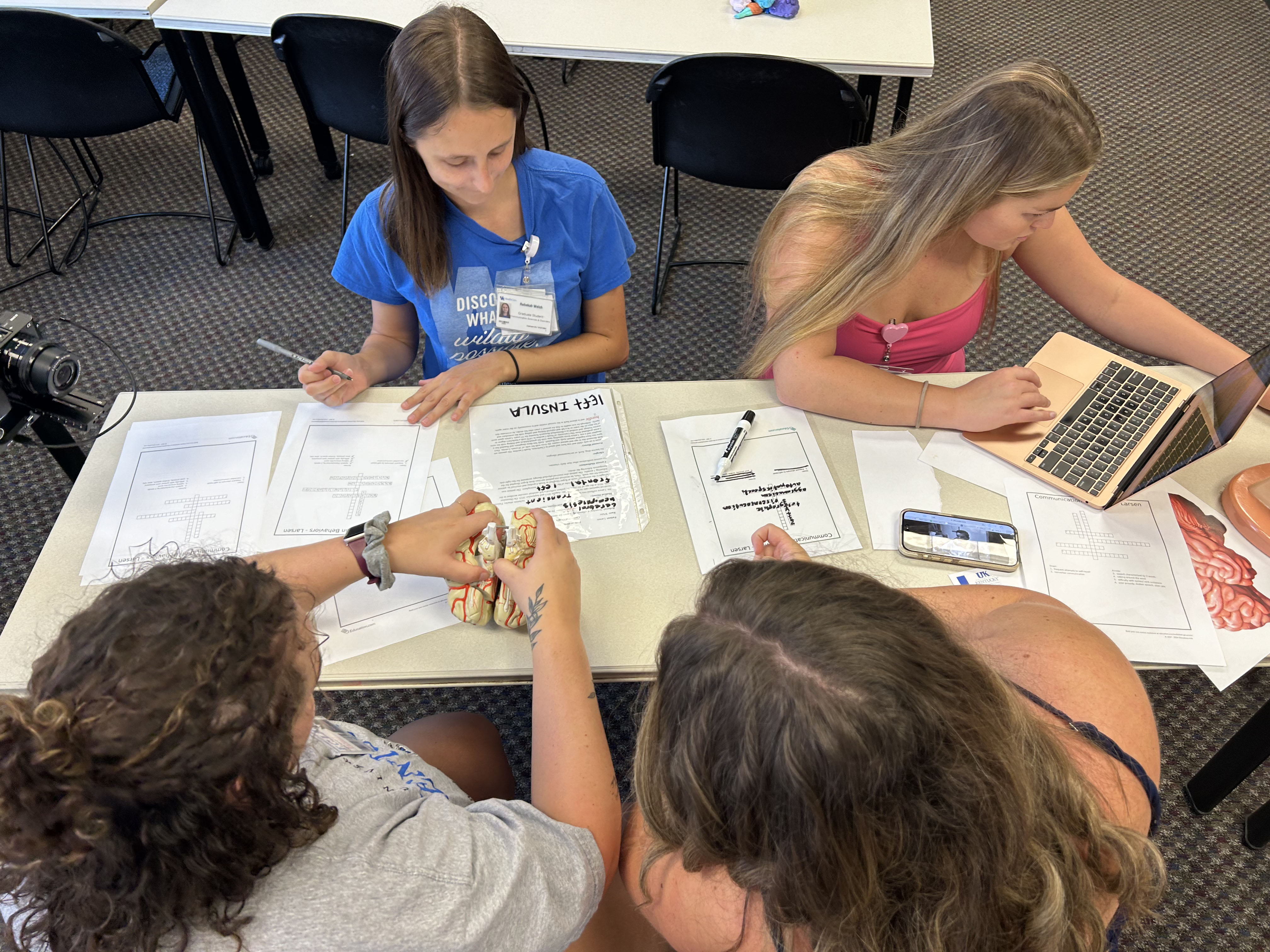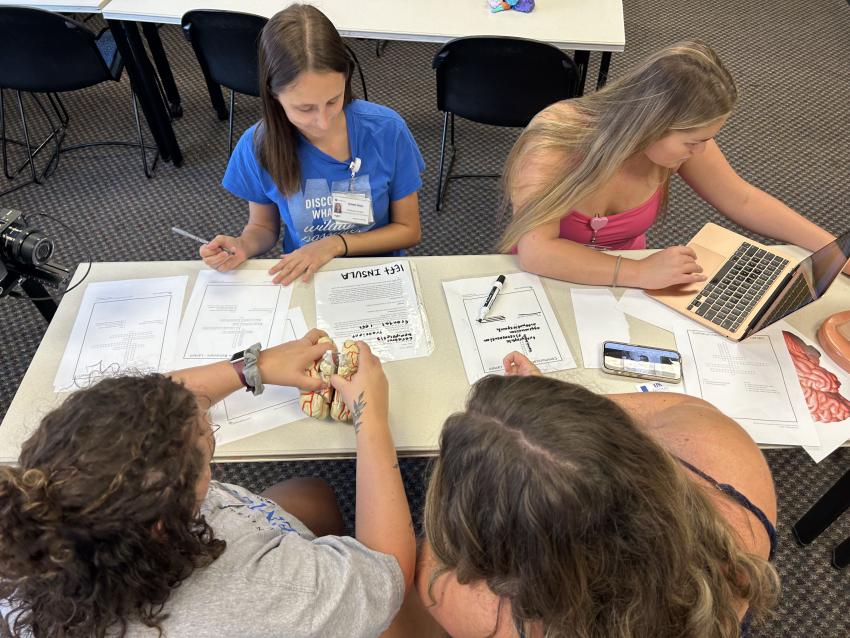Aphasia Classes Solve Escape Room for Final Project
Aug 1, 2024

By Ryan Clark
CHS Communications Director
“This is the first class where I’ve ever done something like this.”
That was how Abby Short described Thursday’s CSD 677: Aphasia and Related Disorders class, where the graduate students were tasked with solving an Escape Room as their final project.
“I think what’s so cool about it is it’s so hands-on,” said Short, a first-year graduate student in the Communication Sciences and Disorders department. “It’s teaching us those practical, clinical skills, giving us a true learning experience in how to be a clinician in the future.”
The Morehead, Ky., native was one of more than 20 students who participated in the final project, which was the brainchild of Christen Page, PhD, CCC-SLP and an assistant professor in Communication Sciences and Disorders.

“After reading about Educational Escape Rooms in nursing, as well as athletic training, and speaking with colleagues in (Medical Laboratory Science), I knew this innovative, team-based project aligned with the objectives of my final class project,” Page said. “I strive to develop engaging and exciting projects that raise awareness of aphasia and challenge students' creative critical thinking skills.”
Every four minutes someone acquires aphasia, which is often caused by a stroke, the National Aphasia Association reports. In 2022 in Kentucky, diseases of the cerebrovascular system (stroke) were the fifth leading cause of death, and one-third of strokes result in aphasia. Out of 60 diseases and 15 health conditions, aphasia has the largest negative impact on health-related quality of life.
“As future speech-language pathologists, students in this class will likely serve individuals with aphasia,” Page said. “They require a clear understanding of aphasia’s impact on quality of life to provide person-centered care.”
The importance — and the fun, were not lost on the students.
“We’re all having a really good time, working hard,” Short said. “I’m used to sitting down, and it has to be quiet to take an exam. To have a group learning experience like this, to play a huge role in the completion of the class, is awesome.”
Page said she hopes students can get a better understanding of aphasia.
“The aim is for students to better understand aphasia by applying course content to solve puzzles related to a person with aphasia,” she said. “Each group of four students will receive a different case study and solve puzzles related to the individual's medical history, assessment, goals, and appropriate treatments. By integrating educational content into a game format, I hope to make learning about aphasia more dynamic and enjoyable.”
“In real life, we may not always have a textbook with us,” Short said. “I feel like (Dr. Page) has prepared us well. We’re all having a good time.”
Students and individuals with aphasia will also educate the community in an effort to spread aphasia awareness. They will present:
- Tuesday, Aug. 6 at 10 a.m. at Southland Christian Church and at 12:30 p.m. at the High Street YMCA.
- Wednesday, Aug. 7 at 2 p.m. at Central Library in Fayette County